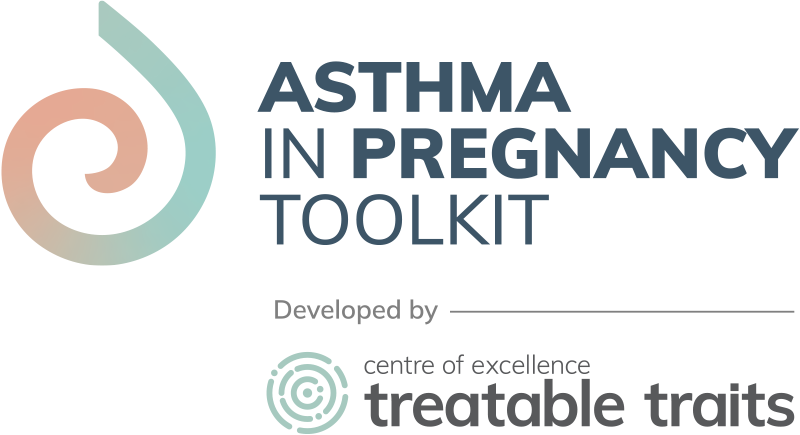Key messages
- The major benefit of oral corticosteroids (OCS) in severe asthma exacerbations exceeds the possible fetal risk, with low levels of oxygen in both the pregnant woman and the fetus during an exacerbation.
- Prescription of OCS and ongoing management needs to be provided by an obstetrician, obstetric physician, respiratory specialist or GP with appropriate knowledge and expertise.
- It is recommended that healthcare professionals work with pregnant women with asthma to optimise their asthma control and reduce the risk of an asthma exacerbation.

Indications
Evidence from emergency departments indicates the underuse of oral corticosteroids for the treatment of acute asthma exacerbations in pregnant women (McCallister et al. 2011). Oral corticosteroids are mostly used in moderate-severe disease, and should be prescribed for pregnant women whenever clinically indicated, as for other adults (Australian Asthma Handbook). Asthma exacerbations before pregnancy and more severe asthma prior to pregnancy, are associated with an increased rate of exacerbations during pregnancy (Bokern et al. 2021, Robijn et al. 2022) and therefore also the need for OCS. If required for a severe attack, use according to guidelines (e.g. 37.5–50 mg each morning for 5–10 days) (Australian Asthma Handbook).
Evidence for safety relating to pregnancy and breastfeeding
The data concerning OCS use during pregnancy are conflicting and recent long-term prospective studies are lacking. Some studies have shown no increase in congenital malformations in humans (Czeizel & Rockenbauer 1997) , others showed that their use, especially during the first trimester, is associated with a risk for isolated cleft lip ± cleft palate (Park-Wyllie et al. 2000) as well as an increased risk of pre-term birth and low birthweight (Namazy et al. 2013), reduced birthweight and pre-eclampsia (Schatz et al. 1997). In contrast, recent data have shown that there is no significantly increased risk of development of heart diseases in the offspring (Wei et al. 2022).
However, the major benefit of OCS in severe asthma exacerbation exceeds the possible fetal risk, with low levels of oxygen in both the pregnant women and the fetus during an exacerbation. Only 10% of the maternal concentration of prednisone and prednisolone is found in fetal blood (Middleton et al. 2020). If a high dose continues until birth, adrenal insufficiency in the newborn must be considered. Substitution with hydrocortisone may be necessary when parenteral administration is needed. With prolonged treatment at high maternal doses, it is advisable to delay breastfeeding for 3–4 hours after the dose to minimise transfer to breast milk.
